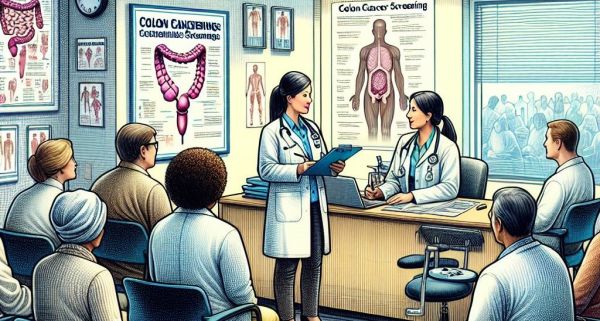
Start the New Year strong: Why colon cancer screenings are a vital resolution

As physicians, Dr. Donna Powell and Dr. Renee M. Marchioni Beery of Gastro MD often see the New Year as a time when patients reflect on ways to improve their health and well-being. Many commit to eating healthier, exercising more, or focusing on self-care. While these are important goals, there’s one essential health action that doesn’t always make the list but has the power to save lives: recognizing the symptoms and scheduling a screening for colon cancer.
January is National Colorectal Cancer Awareness Month, and a time to bring awareness to the second leading cause of cancer-related deaths in the United States. Colorectal cancer is one of the most preventable forms of cancer when caught early. Despite this, many people don’t understand the early warning signs. As gastroenterologists, Dr. Powell and Dr. Beery often see patients who delay seeking care for colorectal cancer until symptoms become severe. Understanding the early warning signs and acting promptly can make all the difference. While screenings are essential, recognizing the symptoms of colorectal cancer is an equally important part of staying ahead of this disease.
Signs and symptoms to watch for
Colorectal cancer often starts silently, but as it progresses, it can present with various symptoms. Here are the key signs to be aware of:
- Persistent changes in bowel habits: This includes diarrhea, constipation, or a change in stool consistency that lasts more than a few days.
- Rectal bleeding or blood in the stool: While this can have other causes, it’s crucial to consult a doctor if you notice it.
- Abdominal discomfort: Cramping, gas, or persistent stomach pain that doesn’t go away.
- Unexplained weight loss: A sudden drop in weight without changes to diet or exercise.
- Weakness or fatigue: This may indicate anemia caused by blood loss from the colon or rectum.
If you experience any of these symptoms, don’t wait to seek medical advice. While they don’t always point to colorectal cancer, it’s better to rule out serious conditions early.
The importance of screenings
The statistics are hard to ignore: when caught early, colon cancer has a five-year survival rate of over 90%. This means that scheduling a routine screening could literally be the difference between life and death. The American Cancer Society recommends that most people begin screenings at age 45, though those with higher risk factors may need to start even earlier.
Family history, personal medical history, and lifestyle choices all play a role in your level of risk. If colon cancer runs in your family or if you’ve experienced inflammatory bowel diseases like Crohn’s or ulcerative colitis, your doctor may recommend earlier or more frequent screenings. Even factors like diet, exercise, smoking, and alcohol consumption can influence your risk, making it even more important to stay ahead of potential problems.
While New Year’s resolutions often focus on short-term goals, scheduling a colon cancer screening is an investment in your future. It’s an act of self-care that goes beyond diet trends or fitness challenges—it’s about preserving your life and health. The gastro professionals at Gastro MD understand that taking this step can feel overwhelming, which is why they are here to guide you through every part of the process with compassion and expertise.
“Let this be the year you choose prevention over hesitation.
Schedule your colon cancer screening with confidence, knowing that you’re making one of the most important health decisions of your life.”
–
Sources: Dr. Donna Powell, Dr. Renee M. Marchioni Beery, and, Gastro MD
Posted by Richard Webster, Ace News Today
Follow Richard on Facebook, Twitter & Instagram







